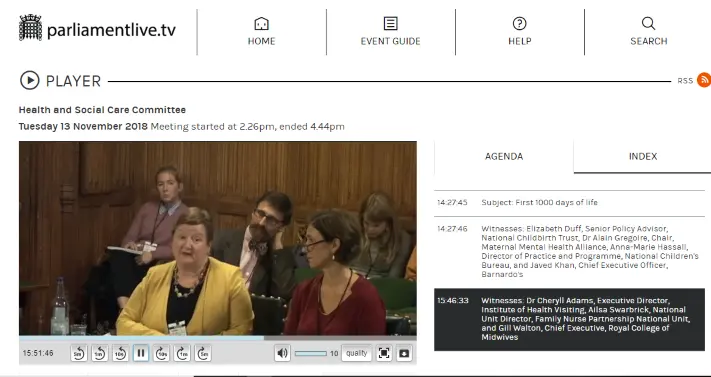The Health and Social Care Committee has launched an inquiry into the early years of a child’s life. The early years of a child’s life, from conception to age 2, is vital to their ongoing physical, mental and emotional health and development.
Dr Cheryll Adams CBE, Executive Director iHV, commented:
“This inquiry into the first 1000 days of life is an opportunity for health visitors to feed in their views of what needs to change to support infants during the period from pregnancy to age two. Local evidence of good practice would be particularly helpful during these difficult times for the profession.”
Call for written submissions
The Committee would like to receive written submissions on the following questions:
1. National strategy
- The top priorities for a national strategy, based on existing evidence and lessons from other countries, particularly the devolved administrations.
- The current roles, responsibilities and functions across Whitehall, executive agencies and other non-departmental public bodies for the First 1000 Days, including suggestions for how these arrangements could be made more effective.
2. Current spending and barriers to investment
- Recent public spending on services covering the First 1000 Days.
- Difficulties in making the case for investment nationally and locally.
3. Local provision
- The scope, scale and current performance of provision for First 1000 Days of life, including universal and targeted approaches.
- Barriers to delivery (e.g. workforce shortages, financial constraints on councils)
- What a high-quality evidence-based approach to service provision would look like for the First 1000 Days of life.
Deadline for written submissions is Friday 7 September 2018.
Targeted call for evidence (local councils and CCGs)
In addition to the open call for evidence above, the Health and Social Care Committee would also like to invite local councils and Clinical Commissioning Groups (CCGs) to supply evidence on what provision looks like for the first 1000 days across the country, along with the factors that have influenced the current landscape of provision.




